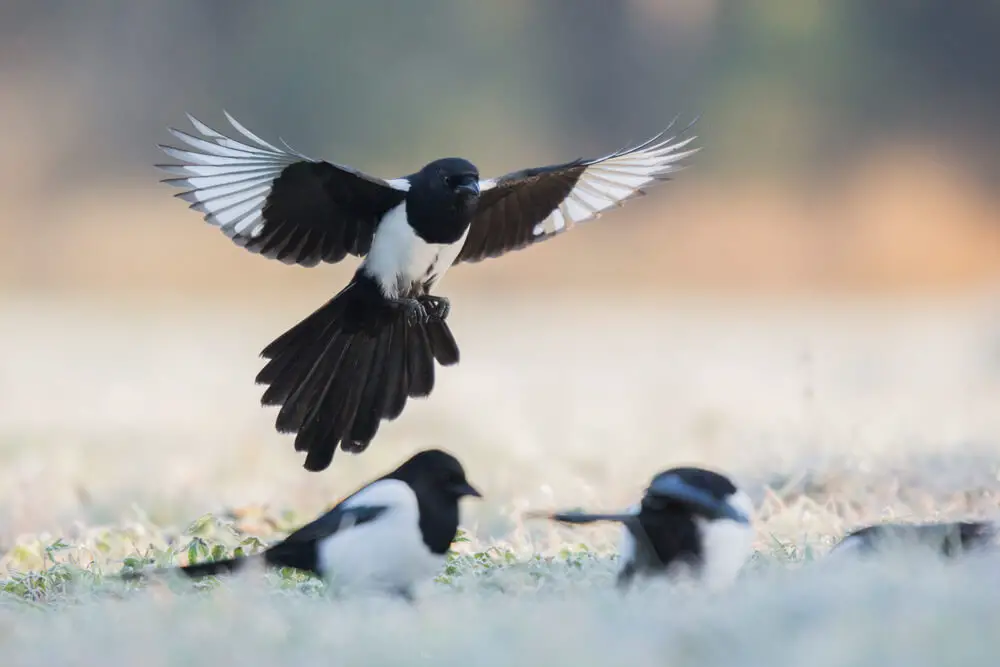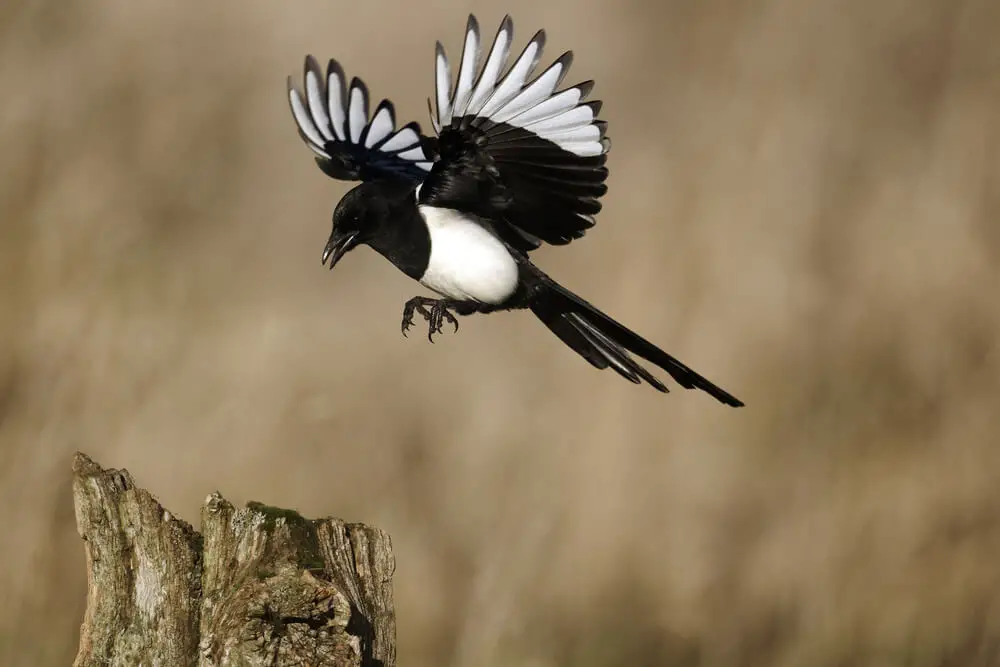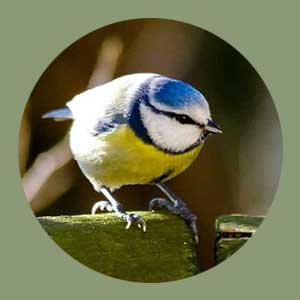I was out in the car earlier and spotted a magpie at the side of the road. I’m not usually superstitious, but felt obliged to doff my (non-existent) cap, wish him a good day, and ask about the welfare of his wife!
I scoured the area for a second bird, after all, no one wants one for sorrow.
It is hard to believe that the number of birds spotted in a cluster can define your fate, but superstition and folklore say otherwise.
Our reaction to magpies can also bring good or bad luck to the observer. What is it about these much-maligned birds that make normally level-headed people do crazy things?
I decided to do a little research on the Magpie Song to find out its origins, as I’m 100% sure where it came from.
One for sorrow, Two for joy,
Three for a girl, Four for a boy.
Five for silver, Six for gold,
Seven for a secret, never to be told.

Table of Contents
The Magpie Song and its Origins
The first outing for the Magpie Song was back in 1777. It was penned by John Brand and published in the Observations on Popular Antiquities in Lincolnshire; a very niche read!
The lyrics were different and a little more menacing;
One for sorrow, Two for mirth,
Three for a funeral, Four for a birth.
People alive in the Georgian era must have dreaded seeing an odd number of magpies gathered together. A couple of Magpies signified joy, merriment, and laughter ahead, the best option by far.
In 1846, William John Thoms created the term folklore – and the magpie song fitted the bill.
It was a rhyme that upheld traditional beliefs and stories of a community. It was passed down through a generation, spreading and snowballing through word of mouth.
He had probably read the latest version of the rhyme, printed that very year in Proverbs and Popular Sayings of the Season. An English merchant and collector of folklore, Michael Aislabie Denham, published this version.
One for sorrow, Two for mirth,
Three for a funeral, Four for a birth,
Five for heaven, Six for hell,
Seven for the devil, his own self.
It seems that Victorians had an extra two reasons to always look for an even number of magpies!
The Modern Version of the Magpie Song
One for sorrow, Two for joy,
Three for a girl, Four for a boy.
Five for silver, Six for gold,
Seven for a secret, never to be told.
Is this the version that you most recognise? Its popularity might come as surprising.
In 1968, ITV introduced British children to a TV programme called Magpie, a magazine show set to rival Blue Peter.
It was packed with popular culture and hoped to resonate with the ‘hip kids’
The show’s name was cleverly a play on the habit of the magpie; collecting lots of shiny items.
It also split the word in two;
Mag – a shortened version of the word magazine
Pie – a collection of ingredients packed together.
The Magpie Theme Tune
Do you remember The Spencer Davis Group and their big hit, Keep on Running?
It was released in 1965, and the group remained relevant for many years.
Thames TV approached the group to come up with a title song for the show, Magpie. They used the alias The Murgatroyd Band and adapted the most familiar version by adding a couple of lines.
Eight for a wish, Nine for a kiss,
Ten for a bird you must not miss.
The final line referred to the show; the bird you wouldn’t want to miss was the next episode.
Why the Magpie Song Only Goes up to Ten
When the rhyme was initially written, magpies possibly wouldn’t be seen in large flocks and seldom in groups of more than ten.
The magpie population has been growing for many years; possibly due to the amount of available roadkill
Mated pairs hold strong territories. Where there is no available space to establish a new one, magpies flock together in larger numbers than ever before.
It isn’t unusual to see gatherings of more than twenty birds in open fields.
If I ever saw a mischief of magpies such as this, I would be sure to continue the rhyme in my favour. Maybe, 20 for a lottery win, 21 for world peace, 22 for breakfast in bed every Sunday…that kind of thing!

The Lancastrian Version of The Magpie Song
There is a popular version of the rhyme common to Lancashire.
It is the same as the popular ten-line version; however, instead of not wanting to miss a bird if you spot ten magpies, you don’t want to miss a surprise.
Perhaps the magpie population exploded earlier in Lancaster than the rest of the UK, as their version includes groups of thirteen magpies.
Eleven for health, Twelve for health
So far, so good…
Thirteen beware, it’s The Devil himself!
I imagine anyone spotting thirteen magpies would demand a recount until they achieve a more satisfactory outcome!
What Influenced Magpie Song?
The magpie song is the stuff of myth, legend, and folklore and is usually believed by superstitious people.
Depending on your beliefs, the rhyme has a basis in fact.
It is believed to date back to the Crucifixion of Christ. Several magpies were present, yet none offered him any comfort, wept as he died, or mourned his passing.
Magpies were also said to be involved in another biblical incident.
The birds refused to enter Noah’s Ark, preferring instead to remain out on the rails of the deck, passing their time squawking and swearing at all within earshot.
Are Magpies Unlucky?
The rhyme in its most popular form suggests that it is only unlucky if you spot a solitary magpie but there are still many ways to reverse your misfortune.
- Doff your hat or cap
- Say good morning to the bird and ask him how his wife and children are
- Do a military-style salute
- Pander to his vanity by saying “Good Morning Captain” or “Good Morning General”
- Blink 3 times to convince your brain that you saw more than one bird!
Of course, only superstitious people believe that magpies can somehow affect the course of your day or life.
Some cultures believe that a single magpie can alter a good day into a rubbish one, or many worse outcomes, including death!
Conclusion
Researching this article made me smile, especially when the Magpie Song was referred to as a nursery rhyme!
I’m not sure I would rock my grandchildren to sleep to the dulcet tones of funerals, death, and the devil!
I think I shall stick to Hush Little Baby for now!
